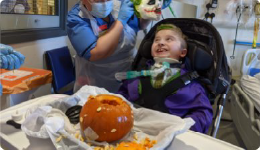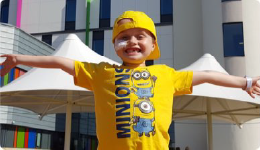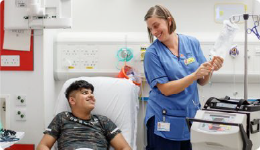Your Midwife will usually visit you once you are home during the first 10 days after your baby is born. After that your Health Visitor will usually take over and visit you at home between 11-14 days to meet you and your baby. You might also be offered 2 visits when your baby is between 3 and 5 weeks old. You can find out what to expect during these visits on Happy Healthy Tots.
Routine hearing tests are offered to newborn babies and children to identify any problems early on in their development. You can find out more about hearing tests for children on NHS Inform.
Being a new mum is exhausting. It is important to take care of yourself so make sure you book an appointment with your GP for your 6 week postnatal check-up.


 Every child grows and develops in their own time. If you are worried about your child's development then speak to your Health Visitor, Family Nurse or GP.
Every child grows and develops in their own time. If you are worried about your child's development then speak to your Health Visitor, Family Nurse or GP.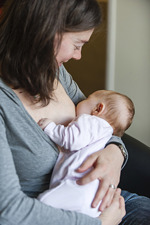
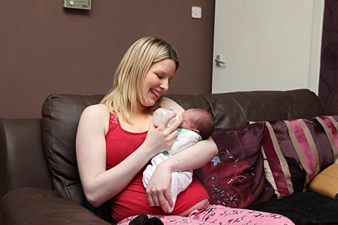
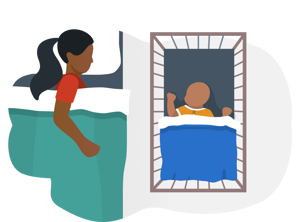 Babies should always be put on their backs to sleep, in a clear, flat sleep space. Find out more information about safe sleep from Scottish Government
Babies should always be put on their backs to sleep, in a clear, flat sleep space. Find out more information about safe sleep from Scottish Government 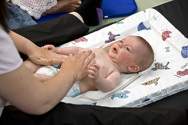 Babies are born being dependent on you for all their care needs. Your baby might not enjoy care routines like nappy changing or bathing. Talk to your baby during care routines and tell them what is happening. For more information look at CBeebies Parenting
Babies are born being dependent on you for all their care needs. Your baby might not enjoy care routines like nappy changing or bathing. Talk to your baby during care routines and tell them what is happening. For more information look at CBeebies Parenting  Crying is the most obvious way that your baby communicates. It can be tricky to work out when they are crying in pain, hunger or because their nappy needs changed. Your baby will make gurgling sounds when they are content.
Crying is the most obvious way that your baby communicates. It can be tricky to work out when they are crying in pain, hunger or because their nappy needs changed. Your baby will make gurgling sounds when they are content. Your baby will enjoy looking at your face and being talked to in a slow gentle voice.
Your baby will enjoy looking at your face and being talked to in a slow gentle voice.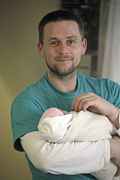 Babies often like gentle rocking movement as this is like what they felt in the womb. Be led by your baby. You could try:
Babies often like gentle rocking movement as this is like what they felt in the womb. Be led by your baby. You could try:


